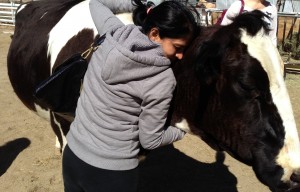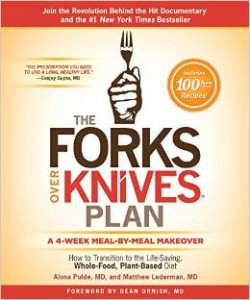What is a vegan diet?
A vegan diet excludes consumption of all animal products (meat, fish, poultry, eggs and dairy) and all byproducts derived from them. People adopt a vegan diet (and, often, lifestyle) for myriad reasons.
Here are three of the most common motivators for eschewing animal products:
1. Health
Years of research show that meat and dairy in our diet is posing health hazards leading to chronic diseases like cardiovascular diseases, cancer, diabetes, high blood pressure and obesity among others.
A whole foods plant-based diet, and even less committed versions of this ideal, can help prevent and even reverse these fates we once thought were inevitable with old age. No longer need we expect to slow down at age X. Or gain weight at age Y. Or succumb to death at age Z.
There is an alternative to these widely but wrongly held assumptions about our timeline and it begins and ends with diet and how we treat our body.
2. For the environment
The environmental impact of the beef and dairy industries alone is considered so significant that it is deemed responsible for at least 18% of the greenhouse gas emission GHGE. Large-scale livestock farming is taking a major toll—locally, regionally, nationally and globally.
Degradation of fertile land due to use of single-crop techniques, deforestation for pastureland, water pollution due to run-off from beef cattle, dairy cows and pig waste (“lagoons,” as they’re called, frequently leak, contaminating groundwater, which in turn hurts plants, humans and animals, including fish) and air pollution and loss of biodiversity are just some of the direct and far-reaching effects resulting from animal agriculture.
Then, of course, there are the economic activities that accompany this industry: processing, packaging and transportation, to name a few.
3. For ethical reasons
Contemporary farming by its very “nature” causes untold pain and suffering to cows, chickens, pigs, goats, sheep, sea life and so on.
Ten billion land animals (not counting sea life) are bred into this system every year in the United States alone.
And, despite the ever-trendy phrase, there’s no such thing as “humane meat.” It’s an oxymoron. It’s not possible to kill an animal, human or otherwise, humanely.
Besides, between birth and death, farm animals suffer any number of abuses that fall, appallingly, within the law. Abuses that if they involved a companion animal, say a dog or a cat, would evoke public outcry and fervent demands that justice be served to the perpetrator.
The fairly recent advent of “Ag-Gag” agendas across America offers still more insight into this secretive industry and to what length said industry—and its powerful lobbyists—will go to keep itself unseen by a paying public.
Another ethical reason for rejecting animal products relates to human animals, in the form of global hunger.
More and more land and water resources are being allocated for growing feed for animal farming, thus usurping fertile land and clean water that could otherwise be used to grow plants and grains for human consumption.
Some environmentalists suggest that the amount of grains, soy and corn grown to feed livestock in the U.S. alone would be enough to feed the entire starving population on Planet Earth.
To put it in perspective, twenty vegans could be fed from land that yields enough animal feed to produce meat for one person. Consuming a cow, for instance, is egregiously inefficient in terms of nutrient and calorie distribution, and has been aptly dubbed “a protein factory in reverse.”
It just doesn’t add up.
If fellow earthlings seem too broad a scope to cope with caring about, simply empathizing with hungry humans should be reason enough to become an ethical vegan. Rejecting animal products does more for developing countries than meets the eye—or modern day media.





